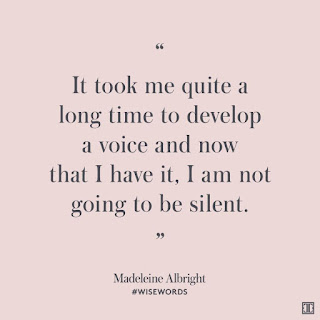Let's Talk About Relapse - Day 7 - The Big Myth of Relapse
I believe that there are a number of myths that surround relapse! I want to share what I call the big myth with you as it relates to recovery from relapse.
This is important for those in recovery from relapse and also those who want to support us in healing ways because contrary to a common myth, relapse is not the result of a lack of willpower.
Homework: Continue to work on your releasing of shame. Journal or meditate - use whatever means works for you. But continue this practice. Then, begin thinking about and writing down your triggers - people, places, things, thoughts, feelings, etc.- and describe how each trigger affects you, your decisions, and your actions. Take your time on this. If you feel ready, next to each trigger, connect it back to its source. Take comfort in knowing that understanding causation leads to making healthier decisions and choices. Take care of yourself as you do this.
One of the reasons that I spent a great deal of time on several previous blogs discussing shame is because of its critical role in not only triggering a relapse episode but also in sustaining one. I discussed how paramount it is to unravel and release the layers of outer shame (embarrassment, humiliation, guilt, self-blame,etc.) in order to begin to embrace recovery again. And, I guided you through the tender territory of the inner core of shame which must be accessed and addressed in order to sustain recovery from relapse.
So many times, either as a therapist or in my personal life, I often heard others say, "Why doesn't she just try harder?" Or, "If he just puts his mind to it, I know he could quit." Or even better, "She really doesn't want to get well." What I have to say next is very important. There are a myriad of physical, psychological, emotional, behavioral, environmental, and cognitive triggers that come into play with relapse. If we have been working a recovery program, or are in therapy, or have knowledge of the recovering process, we are probably aware of our triggers. However, even then, many of us do not realize their relationship to relapse, and therefore, have no reason to give them concern. If we have not had recovering experiences,we are most likely not aware of our triggers and how they are impacting our decisions and our choices. Also, when we are triggered, many times denial kicks in, minimizing or mitigating unpleasant feelings or emotions, and we move through the trigger without dealing with the causal issues.
Here is the critical point.
Triggers are a symptom. Triggers send us warning signs - something doesn't feel right. Something stings; it hurts; it's painful; it's uncomfortable; it needs to stop. We feel angry, frightened, vulnerable, unsafe; we want the feeling to go away - we want to run away from it, now.
Triggers lead directly back to our layers of shame, and in many cases, to the core of our shame. What is happening in the present (the trigger) is taking us to past painful emotions, feelings, experiences and we are reliving them.
We are immediately re-injured, and we will do anything - including falling back into unhealthy self-soothing behaviors to alleviate the pain and assuage the shame. This is why it is absolutely paramount to address our underlying issues - to peel away the layers of shame and get at the core of deeply embedded injuries or injustices. And, as I have shared with you, it is non-negotiable; we must be courageous and vulnerable - we must embrace healing from our past betrayals. By not doing so, we will be re-triggered continually, and we will be concurrently at risk for relapse.
Triggers will almost always continue to be a part of our lives; however, the encouraging news is that they need not serve us solely in detrimental ways. Instead, triggers can remind us that we may have unfinished healing that needs additional attention. And even after working through core issues of causation, triggers can help us to be cognizant of our levels of healing so that we can be pro-active in protecting ourselves from unhealthy environments and in planning ahead when navigating through them. Triggers can teach us how to honor ourselves, our pasts, and our current healing truths. I will address this more next time...for now, remember...
Triggers remind us that we can let go of one big myth -
We can rest in that truth.
We can rest in that truth.
Homework: Continue to work on your releasing of shame. Journal or meditate - use whatever means works for you. But continue this practice. Then, begin thinking about and writing down your triggers - people, places, things, thoughts, feelings, etc.- and describe how each trigger affects you, your decisions, and your actions. Take your time on this. If you feel ready, next to each trigger, connect it back to its source. Take comfort in knowing that understanding causation leads to making healthier decisions and choices. Take care of yourself as you do this.





Comments
Post a Comment